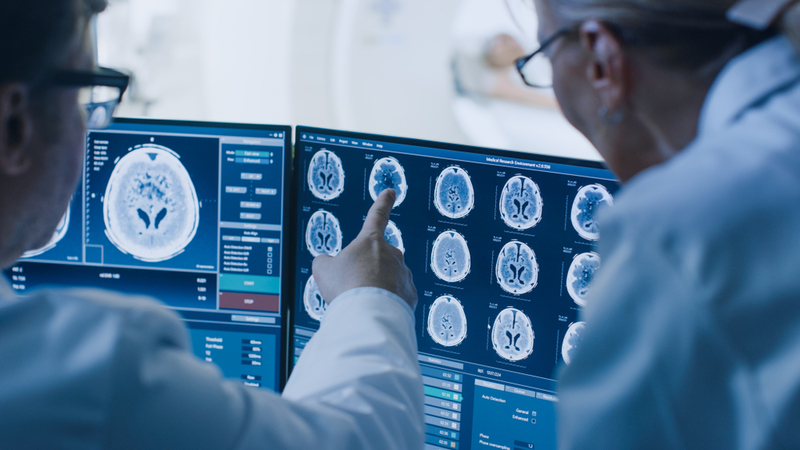Advanced MRI brain scan can predict stroke-related dementia
ANI Sep 14, 2019
Advancement of technology has made it easier for practitioners to diagnose diseases which were earlier tough to predict and at times went undetected.

A study has found that an advanced Magnetic Resonance Imaging (MRI) brain scan analysis in patients with stroke-related, small vessel disease, helped predict problems with thinking, memory and even dementia. The study was published in the 'Stroke: Journal of the American Heart Association'. When a stroke or other disease damages tiny blood vessels in the brain, the condition is known as small vessel disease. This condition is the most common cause of thinking problems (planning, organising information and processing speed) and can even lead to dementia. Although early treatment could help patients at risk, no effective test is available to identify them.
This study evaluated the accuracy of a new MRI analysis technique using diffusion tensor imaging (DTI), in predicting thinking problems and dementia related to small vessel disease. A single scan measured the brain in fine detail to reveal damaged areas. By comparing these images to a healthy person's, researchers were able to classify the brain into areas of healthy versus damaged tissue. Results showed that participants with the most brain damage were much more likely to develop thinking problems. The analysis also helped predict three-fourths of the dementia cases that occurred during the study.
"We have developed a useful tool for monitoring patients at risk of developing dementia and could target those who need early treatment," said senior author Rebecca A Charlton. The study included 99 patients with small vessel disease caused by ischemic stroke, a type of stroke that blocks the blood vessels deep within the brain. Slightly more than one-third were female, average age 68, and most were Caucasian. Participants received the MRI scans annually for three years and thinking tests annually for five years. Eighteen participants developed dementia during the study, with an average time to onset of approximately three years and four months.
This advanced MRI analysis offers a highly accurate and sensitive marker of small vessel disease severity in a single measure that can be used to detect who will and will not go on the develop dementia in a five-year period, noted Charlton.
-
Exclusive Write-ups & Webinars by KOLs
-
Daily Quiz by specialty
-
Paid Market Research Surveys
-
Case discussions, News & Journals' summaries